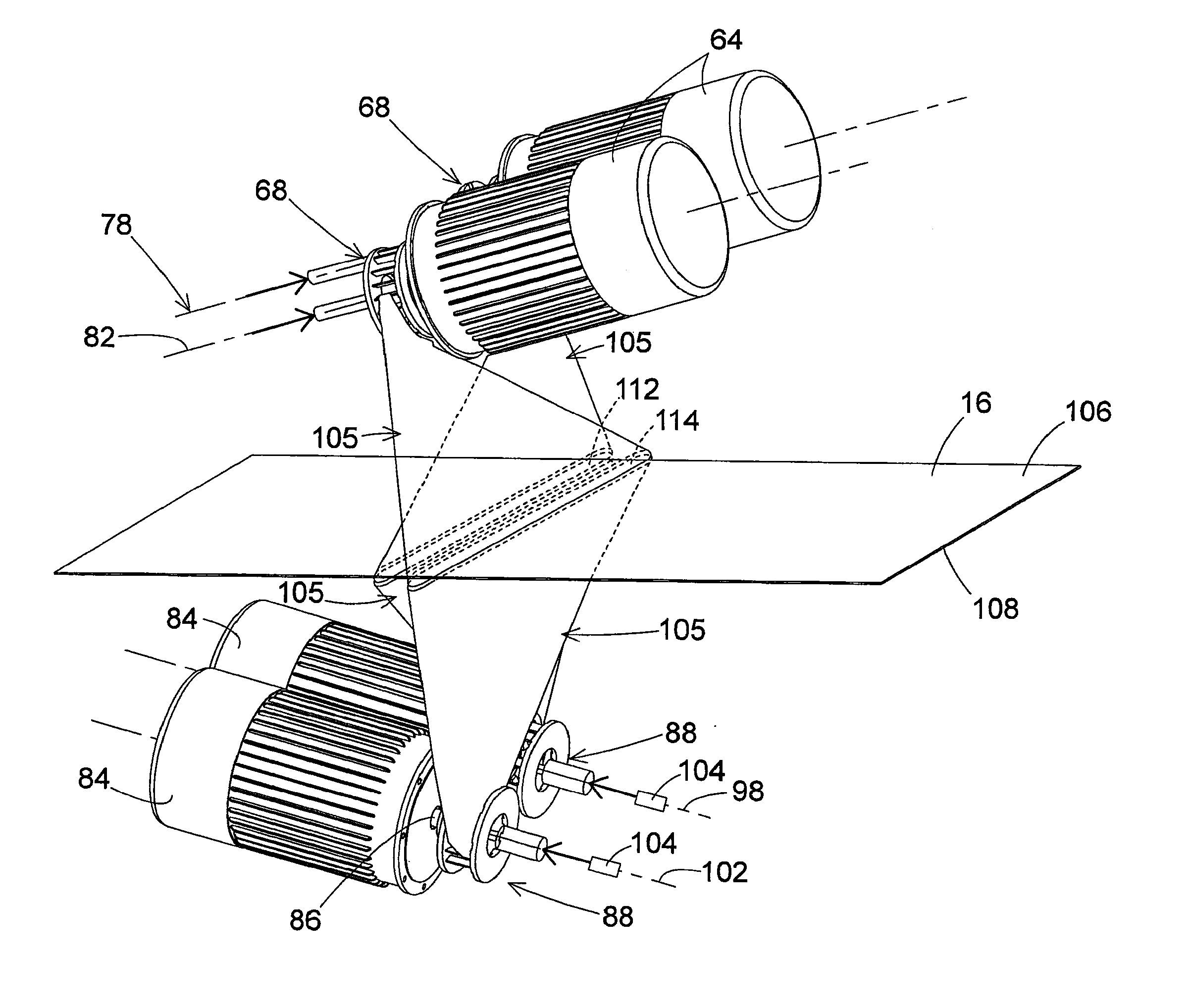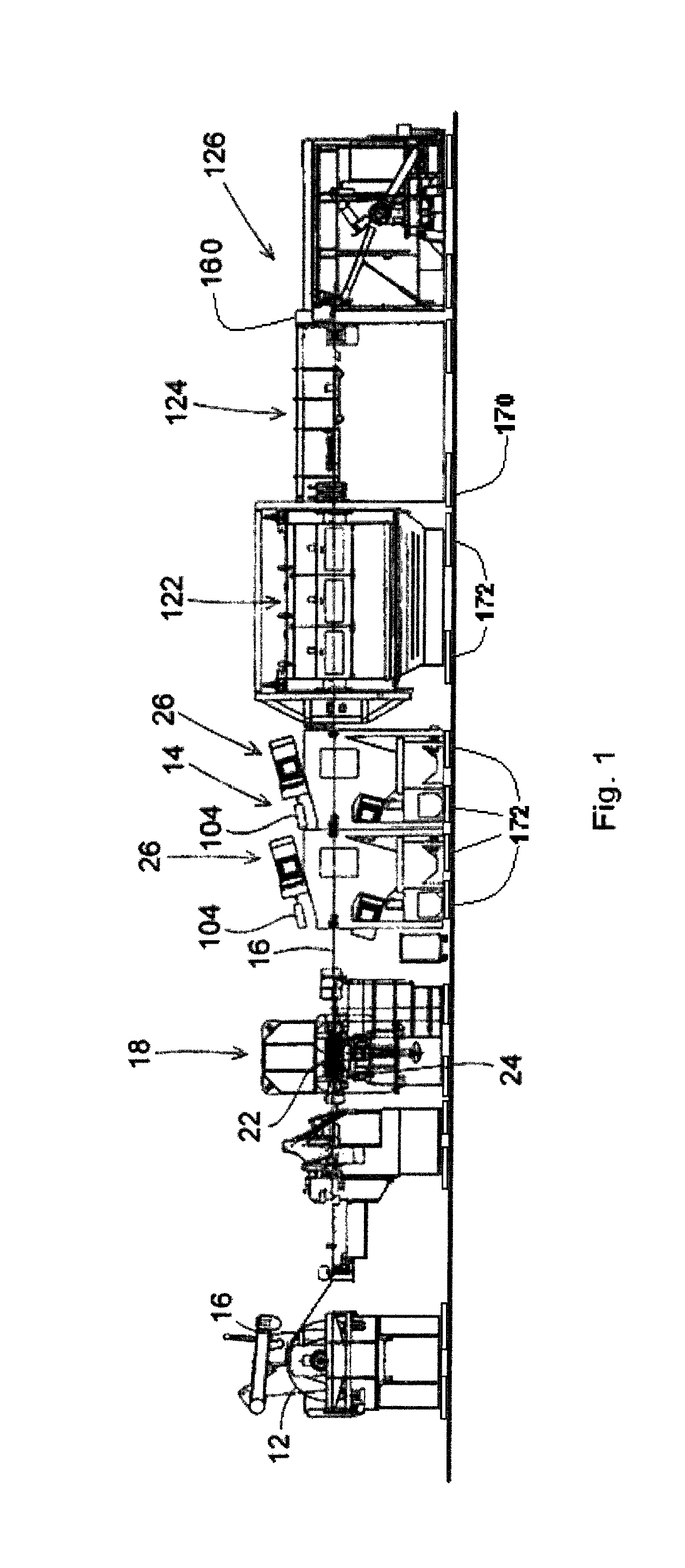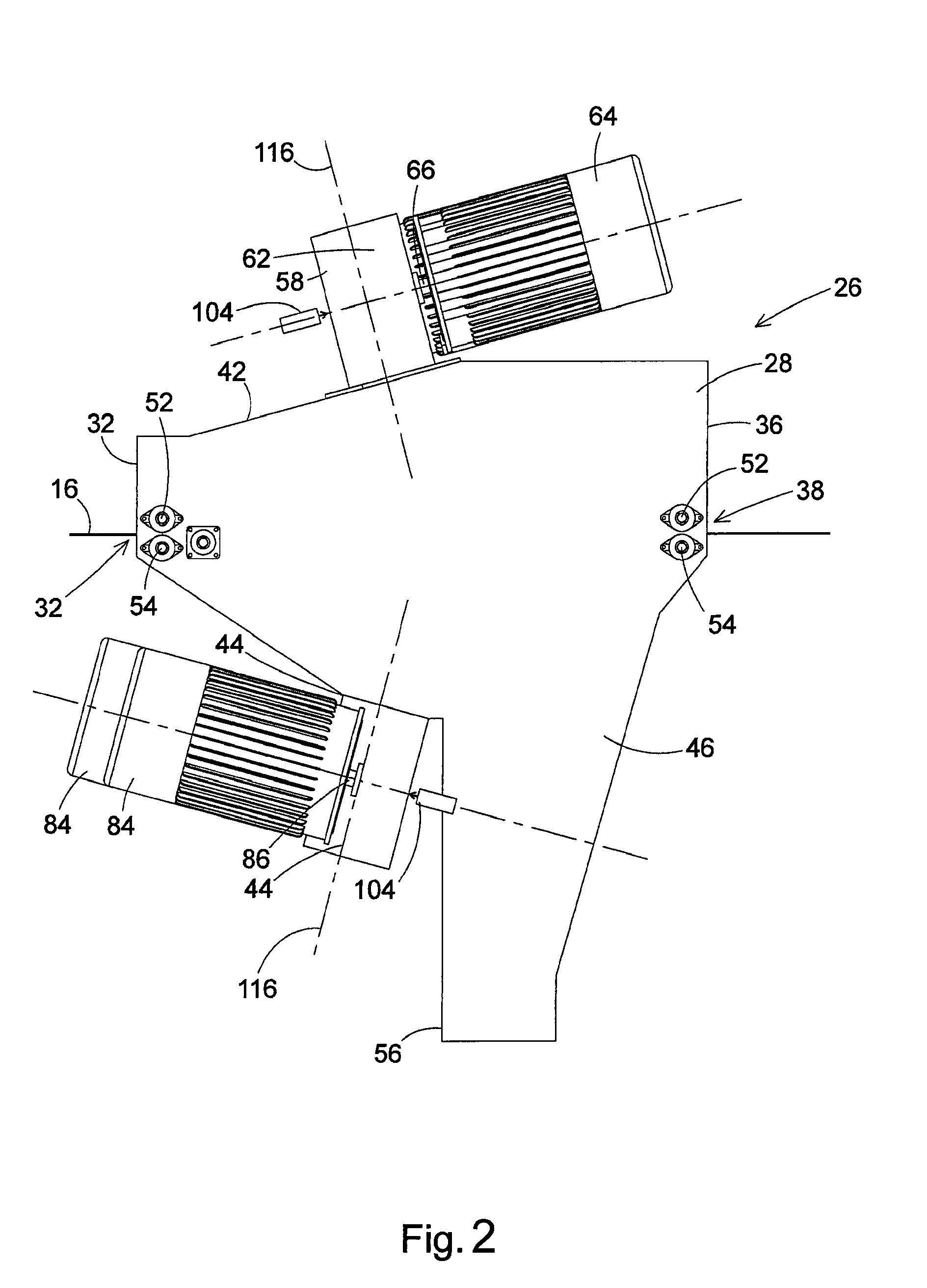Method of producing rust inhibitive sheet metal through scale removal with a slurry blasting descaling cell having improved grit flow
a technology of scale removal and descaling cell, which is applied in the direction of manufacturing tools, edge grinding machines, chemistry apparatus and processes, etc., can solve the problems of corrosive acid used in the acid bath, affecting the quality of rust inhibitive sheet metal,
- Summary
- Abstract
- Description
- Claims
- Application Information
AI Technical Summary
Benefits of technology
Problems solved by technology
Method used
Image
Examples
Embodiment Construction
[0022]FIG. 1 shows a schematic representation of one embodiment of a processing line incorporating a slurry blasting descaling cell that removes scale from the surfaces of processed sheet metal and produces a rust inhibitive material. As will be explained, the sheet metal moves in a downstream direction through the apparatus from left to right as shown in FIG. 1. The component parts of the apparatus shown in FIG. 1 and as described below comprise but one embodiment of such a processing line. It should be understood that variations and modifications could be made to the line shown and described below without departing from the intended scope of protection provided by the claims of the application.
[0023]Referring to FIG. 1, a coil of previously processed sheet metal (for example hot rolled sheet metal) 12 is positioned adjacent the apparatus 14 for supplying a length of sheet metal 16 to the apparatus. The coil of sheet metal 12 may be supported on any conventional device that functio...
PUM
| Property | Measurement | Unit |
|---|---|---|
| velocity | aaaaa | aaaaa |
| temperature | aaaaa | aaaaa |
| angle | aaaaa | aaaaa |
Abstract
Description
Claims
Application Information
 Login to View More
Login to View More - R&D
- Intellectual Property
- Life Sciences
- Materials
- Tech Scout
- Unparalleled Data Quality
- Higher Quality Content
- 60% Fewer Hallucinations
Browse by: Latest US Patents, China's latest patents, Technical Efficacy Thesaurus, Application Domain, Technology Topic, Popular Technical Reports.
© 2025 PatSnap. All rights reserved.Legal|Privacy policy|Modern Slavery Act Transparency Statement|Sitemap|About US| Contact US: help@patsnap.com



